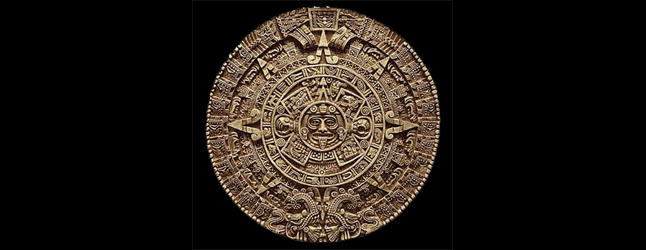

Doomsday. Ragnarok. Judgment Day. The Day of Reckoning. Heat Death. Armageddon. Cataclysm. Apocalypse. End Times. The Rapture. All of these terms and many more have been used in historical, mythological and biblical texts throughout history. Who knew that all of these would converge on this unassuming Friday before Christmas? Or not.
December 21, 2012. Welcome to the end of the world. Also known as the most annoying day in the history of social media. How do you feel? Did we all die? No. Did we get sucked into a wormhole to the fifth dimesion? Alas, no that did not occur either.
A personal favourite doomsday scenario this December 21 was Planet X, or ‘Niburu’, colliding with Earth. Rich in pseudoscience and interpretations of Babylonian and Sumerian mythology, the story originated from a Wisconsin woman who claimed in 1995 to have had a communications device implanted in her brain by aliens (http://www.zetatalk.com/nancybio.htm). Her original claim was Niburu would collide with Earth in May 2003, despite this inaccuracy the Planet X ‘theory’ proliferated. When the date passed without incident, it was said to be a ‘white lie’ in order to fool the establishment. The true date would be revealed as December 21, 2012. At this time, the 12th ‘secret’ planet of our solar system would pass by as it does every 3600 years, allowing for sentient alien interaction and/or screaming heat death, depending on your particular favourite flavour of Kool-Aid.
Not to be outdone by premonitions of death and destruction, the ‘New Age’ side of the coin countered with portents of rebirth and global consciousness on December 21, 2012. We would all be magically whisked away to the fifth dimension and experience a uniting state of profound beauty, joy and love. All problems we face would disappear as humankind finally, collectively understood its interconnectedness with the universe and we came to realize we really are all one super entity perceiving itself subjectively through a hologram as limited three dimensional constructs which are rooted in a thick, sticky molasses type substance we know as ‘time’. On the other hand, it was Friday and most people didn’t have to work in the morning so rivers of booze would flow.
Of course, this isn’t the first time we’ve been let down by false promises for the end of the world. There is a long list of doomsday predictions (http://en.wikipedia.org/wiki/List_of_dates_predicted_for_apocalyptic_events), but before today the most notable heavyweight would have to be December 31, 1999/January 1, 2000, aka Y2K. That was meant to be the big one, wasn’t it? All of our illustrious computer nerds had condemned us to a global computer catastrophe because of the omission of two key digits in date programming. Nuclear missile silos would launch uncontrollably, airplanes would plummet from the sky, and all credit history would be wiped. Oh how disappointed we were when we had to go to work the following Monday. The only cure was to put our faith in another future day of reckoning and pray for more zombies this time.
Why are we so fascinated and addicted to the end of the world? Apocalyptic scenarios are embedded in our culture throughout the history of mythological and biblical storytelling. Two hundred plus years of industrial consumer culture has fostered in us a subconscious need to have the latest and greatest techno-gadget, whatever is new. What could possibly be more ‘new’ and hip than a complete fundamental change in our planet via Armageddon and renewal?
There is a large amount of tension and anxiety about a lot of real problems in our society. An apocalyptic ending or rebirth of the world helps absolve responsibility for those problems, of doing any tangible work to effect real change. Excuses help with procrastination. Why bother recycling or turning the lights off if you’re not in the room? Hell, the world is going to end on Friday anyway, so who cares about climate change?
It is these sentiments that will simply lead people to believe another ‘transformational’ date in another few months, few years or whenever. Just change the date to fit what’s needed. Even in the case of December 21 2012, the supposed ‘end of an age’ supposedly recorded by the Mayans has been revealed to be off by a couple thousand years (http://decipherment.wordpress.com/2012/12/19/baktuns-and-more-baktuns/).
Why the World Didn’t End Yesterday http://www.youtube.com/watch?feature=player_embedded&v=QY_Gc1bF8ds#!
Why are People Obsessed with the End of the World? http://www.youtube.com/watch?v=mG6kZGZFxyg
National Public Radio: Our Fascination With The End of The World http://www.npr.org/templates/story/story.php?storyId=120988099



